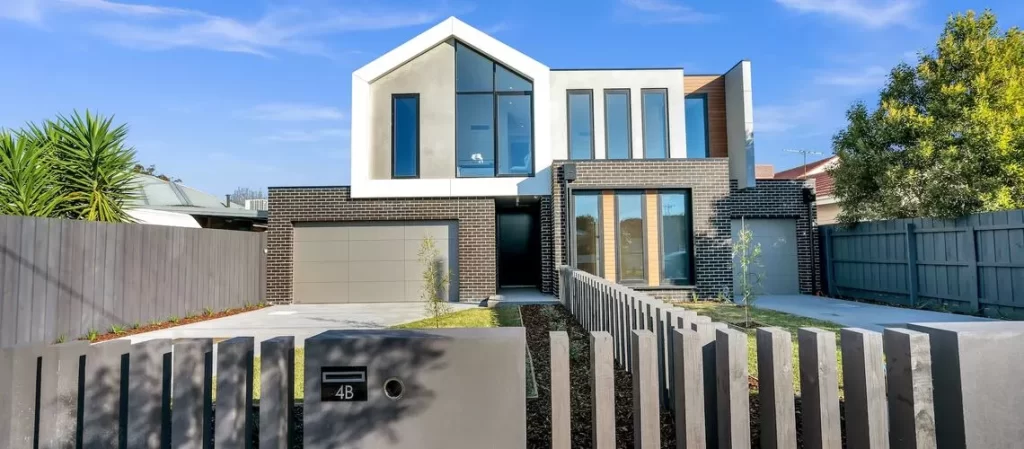Leading Sydney Property Valuation Specialist
Welcome to Cloud 9 Valuations
Our Main Services
Residential Property Valuations
Commercial Property Valuations
Development Site Valuations
Rental Valuations
Why Choose Cloud 9 Valuations?
Expertise
Our team comprises seasoned valuers, each with a deep understanding of Sydney's property landscape.
Integrity
Every valuation we provide is impartial, transparent, and in adherence with the highest professional standards.
Advanced Technology
We employ the latest tools and technologies to ensure our valuations are timely and precise.
Personalised Service
Every client is unique, and so are their requirements. We offer bespoke valuation services, tailored to meet individual needs.
Property News

Key Trends and Insights on Property Valuation in Melbourne
Melbourne’s property market is constantly evolving, with various factors influencing property values. Staying informed about the latest trends in property valuation can help buyers, sellers, and investors make strategic decisions. This article explores the key trends and insights into property valuation in Melbourne, providing valuable information for anyone involved in the real estate market.
Overview of the Melbourne Property Market
Melbourne is one of Australia’s most dynamic and diverse property markets. It features a wide range of property types, from inner-city apartments to suburban homes and commercial properties. The market is influenced by various factors, including economic conditions, population growth, and infrastructure development.
Key Trends in Property Valuation
Several trends are currently shaping property valuations in Melbourne:
- Demand for Suburban Properties: As more people seek larger homes with outdoor space, suburban properties have seen increased demand, leading to higher valuations in these areas.
- Impact of Infrastructure Projects: Ongoing infrastructure projects, such as new transportation links and urban renewal initiatives, are driving up property values in certain neighbourhoods.
- Sustainability and Green Features: Properties with sustainable features, such as energy-efficient appliances and solar panels, are becoming more valuable as buyers prioritise environmental considerations.
Factors Influencing Property Values in Melbourne
Several factors influence property values in Melbourne, including:
- Location: Proximity to amenities, schools, public transport, and employment hubs plays a significant role in determining property values.
- Property Condition: Well-maintained properties with modern features tend to have higher valuations.
- Market Conditions: The balance of supply and demand in the market, as well as broader economic trends, can impact property values.
Understanding these factors can help you make informed decisions about buying, selling, or investing in the Melbourne property market.
The Role of a Property Valuer in Navigating Market Trends
A professional property valuer can provide expert guidance in navigating Melbourne’s complex market trends. By conducting a thorough analysis of market conditions, comparable sales, and property-specific factors, a valuer can offer an accurate assessment of a property’s worth. Their insights are invaluable in making strategic real estate decisions that align with current market trends.
Case Studies: Valuation Examples in Melbourne
To illustrate the impact of market trends on property valuations, consider the following examples:
- Suburban Growth: A family home in Melbourne’s outer suburbs recently saw a 15% increase in valuation due to rising demand for larger properties with outdoor space.
- Infrastructure Impact: A commercial property near a newly completed transportation hub experienced a significant valuation boost, driven by improved accessibility and increased foot traffic.
These examples highlight the importance of staying informed about market trends and seeking professional valuation services to ensure accurate property assessments.
Conclusion
Property valuation Melbourne is influenced by a variety of factors, including market trends, location, and property-specific characteristics. By staying informed about these trends and working with a professional property valuer in Melbourne, you can make strategic decisions that align with your real estate goals. Whether you’re buying, selling, or investing, understanding the factors that shape property values is key to success in Melbourne’s thriving property market.

How to Make Your House More Valuable in Adelaide
Increasing the value of your home is a smart investment that can pay off when it’s time to sell. Whether you’re looking to make a significant upgrade or small improvements, these expert tips can help you boost your property’s value in Adelaide.
Enhance Curb Appeal
First impressions matter, and the exterior of your home is the first thing potential buyers see. Improving your home’s curb appeal can significantly increase its value. Simple steps such as repainting the exterior, maintaining the garden, and updating the front door can make a big difference. In Adelaide, a well-presented home with appealing landscaping can attract more interest and higher offers.
Modernise the Kitchen
The kitchen is often considered the heart of the home, and modernising it can add substantial value. Consider updating old appliances, installing new countertops, and refreshing cabinets with a new coat of paint or new hardware. An updated kitchen can make your home more attractive to buyers and increase its overall value.
Update the Bathroom
Bathrooms are another area where upgrades can lead to a higher property valuation. Simple improvements like replacing outdated fixtures, adding new tiles, or installing a modern vanity can make a significant impact. A clean, contemporary bathroom appeals to buyers and can add considerable value to your home in Adelaide.
Add More Space
Adding space to your home, whether through an extension, a loft conversion, or by creating an open-plan living area, can significantly increase its value. More space often means more functionality and comfort, making your property more appealing to potential buyers.
Improve Energy Efficiency
Energy-efficient homes are increasingly desirable. Upgrading your insulation, installing energy-efficient windows, and adding solar panels can not only reduce your energy bills but also increase your property’s value. In Adelaide, where sustainable living is highly valued, these improvements can make your home stand out in the market.
Fresh Paint and Flooring
A fresh coat of paint and updated flooring can revitalise your home’s interior. Choose neutral colours that appeal to a broad range of buyers. Replacing worn carpets with modern flooring options like hardwood or tile can also boost your home’s value.
Regular Maintenance
Regular maintenance is essential to keep your home in good condition and prevent minor issues from becoming major problems. Fixing leaks, repairing damaged walls, and ensuring that your home’s systems (like plumbing and electrical) are in good working order can maintain and even increase your home’s value over time.
Landscaping and Outdoor Living Spaces
Creating inviting outdoor living spaces can add value to your property. Consider adding a deck, patio, or pergola to enhance your outdoor area. Well-designed gardens and outdoor entertainment areas are highly attractive to buyers and can make your home more valuable in Adelaide.
Conclusion
Increasing your home’s value is achievable with thoughtful improvements and regular maintenance. For an accurate assessment of your property’s value in Adelaide, contact Property Valuation Adelaide. Our experts provide comprehensive and reliable valuations to help you maximise your investment.

Investor’s Guide to Residential Property Valuations in Sydney
Understanding Property Valuations in Sydney
Property valuation, a critical step in the investment process, involves estimating the worth of a residential property. This is especially crucial in Sydney’s dynamic housing market. Sydney property valuations are influenced by various factors such as location, property condition, and market trends. Understanding these aspects helps investors make informed decisions.
Key Factors Affecting Property Valuations
- Location: Proximity to amenities, public transport, and schools.
- Property Size and Condition: Age, layout, and maintenance of the property.
- Market Trends: Current trends in the Sydney housing market.
Navigating the Sydney Housing Market
The Sydney housing market is diverse and complex. From bustling city apartments to suburban homes, the market caters to a range of preferences and budgets. Keeping abreast of market trends, such as fluctuations in property prices and rental yields, is crucial for successful investment.
Current Trends in Sydney
- Price Fluctuations: Understanding recent price changes.
- Rental Market Dynamics: Analysing the demand for rental properties.
Valuation Methods for Residential Properties
Several methods can be employed for valuing residential properties in Sydney. These include:
- Comparative Market Analysis: Comparing similar properties in the area.
- Income Approach: Assessing potential rental income.
- Cost Approach: Evaluating the cost of rebuilding the property.
Choosing the Right Property for Investment
Investing in the Sydney housing market requires careful selection of properties. Factors like potential rental yield, location desirability, and future growth prospects should be considered.
Tips for Selecting Investment Properties
- High Demand Areas: Focus on areas with high rental demand.
- Growth Potential: Look for emerging suburbs with growth potential.
- Property Features: Consider properties with appealing features for renters.
The Role of Professional Valuers
Engaging professional valuers can provide accurate and unbiased estimates. They have in-depth knowledge of the Sydney housing market and adhere to regulatory standards.
Benefits of Professional Valuations
- Accurate Market Value: Ensuring the property is priced correctly.
- Informed Investment Decisions: Providing a solid basis for investment choices.
Leveraging Property Valuations for Financing
Property valuations play a significant role in securing financing for investment properties. Lenders often require valuations to determine loan amounts and terms.
Valuations and Loan Applications
- Loan-to-Value Ratio: How valuations affect borrowing capacity.
- Refinancing Opportunities: Using valuations to reassess loan options.
Conclusion: Maximising Your Investment
Understanding property valuations in the Sydney housing market is key to successful investing. By staying informed and utilising professional services, investors can navigate the market effectively and make profitable decisions.

Understanding Commercial Property Valuation for Insurance Purposes
When it comes to insuring commercial property in Australia, understanding the valuation process is key to ensuring adequate coverage. Accurate property valuation is the cornerstone of commercial building insurance, laying the groundwork for financial protection against potential losses or damages.
The Essentials of Commercial Property Valuation for Insurance
Property valuation for insurance purposes goes beyond estimating the current market value; it focuses on determining the potential cost to replace the building in the event of total loss. This figure is vital for setting the sum insured under a commercial building insurance policy.
Key Components of a Commercial Property Valuation
A comprehensive valuation includes several elements:
- Replacement Cost: The estimated cost to rebuild the property, including materials, labour, and design.
- Current Use Value: Assessment of the property’s value based on its current use, which could differ from other potential uses.
- Location Factors: The location’s impact on construction costs and the potential risks associated with the area.
- Code Upgrades: Consideration for any changes in building codes since the original construction that could affect rebuilding costs.
Why Accurate Valuations Matter
A precise valuation ensures that the insurance coverage will be sufficient to cover rebuilding costs without significant out-of-pocket expenses. Underinsurance can lead to substantial financial hardship, while over-insurance can result in unnecessarily high premiums.
The Valuation Process for Commercial Building Insurance
- Site Inspection: Valuers conduct a thorough inspection of the property to assess its condition and the quality of construction materials.
- Market Research: An analysis of the construction market and costs associated with materials and labour in Australia is undertaken.
- Risk Analysis: Assessment of location-specific risks such as natural disasters, which can influence insurance premiums and coverage requirements.
The Impact of Economic Changes on Valuation
Economic factors such as inflation, changes in the construction industry, and fluctuations in the property market can all affect the valuation of commercial property for insurance purposes.
Regular Reviews: Keeping Valuations Up to Date
Valuations should not be a one-time event. Periodic reviews are essential to ensure valuations remain accurate over time, reflecting changes in building costs and regulations.
The Role of Professional Valuers
Professional valuers bring expertise and an understanding of the nuances involved in commercial property valuation. Their assessments provide the basis for determining appropriate insurance coverage.
Navigating the Complexities of Commercial Building Insurance
Commercial building insurance can be complex, and understanding the terms, conditions, and exclusions is crucial. Property owners should work closely with their insurance providers to understand how valuations affect their policies.
Crafting a Comprehensive Insurance Policy
A well-crafted insurance policy considers all aspects of the commercial property’s value and the specific needs of the business operating within it.
Leveraging Valuation for Optimised Insurance Coverage
Ultimately, leveraging accurate and up-to-date property valuations is vital for optimising insurance coverage. It provides a safeguard against the financial impact of unforeseen events, ensuring that commercial properties are protected in line with their true value.
By delving into the essential role of property valuation in commercial building insurance, property owners and insurance professionals alike can better navigate the intricacies of securing suitable coverage. Accurate valuations are the bedrock of sound insurance practices in the Australian commercial real estate market, ensuring that properties are adequately insured according to their worth and replacement costs.

The Importance of Accurate Property Valuation for Home Sellers
Understanding Property Valuation
Property valuation refers to the process of estimating the worth of a property based on various factors such as its location, condition, and market trends. An accurate home valuation not only gives sellers an idea of their property’s worth but also plays a pivotal role in determining the listing price, negotiation strategies, and eventual sales outcome.
Reasons Accurate Home Valuation is Crucial
1. Setting a Competitive Listing Price
To ensure a property doesn’t remain on the market for an extended period or gets undervalued, it’s essential to set a competitive listing price. An accurate valuation ensures the price is neither too high, which could deter potential buyers, nor too low, which could lead to financial losses.
2. Guiding Negotiation Strategies
With an accurate home valuation, sellers can confidently negotiate with potential buyers. It provides a foundation upon which reasonable counteroffers can be made, ensuring that the seller gets the best possible price for the property.
3. Attracting Genuine Buyers
Properties priced correctly and backed by professional valuations tend to attract genuine buyers who are serious about purchasing. This minimizes time wasted on buyers who are merely ‘window shopping’ or looking for significantly undervalued properties.
4. Facilitating Faster Sales
A correctly priced property is more likely to sell faster. Overpriced properties can languish on the market, while under-priced properties might raise suspicions among potential buyers regarding hidden defects or issues.
The Role of Professional Property Valuers
When it comes to obtaining an accurate valuation, the expertise of seasoned property valuers, especially those with localized knowledge, is indispensable. For instance, property valuers Sydney offer insights rooted in their profound understanding of the region’s real estate landscape.
- Comprehensive Market Analysis: Property valuers from Sydney can provide a holistic view of the current market trends, ensuring the home valuation reflects the most recent sales data.
- Detailed Property Inspection: These experts meticulously inspect a property, considering its condition, unique features, and any potential issues that might affect its value.
- Local Expertise: Being familiar with specific Sydney neighbourhoods allows property valuers to account for location-based value variations, such as proximity to amenities or potential future developments.
Choosing a Reliable Property Valuer
For sellers, especially those unfamiliar with the real estate industry, it might be challenging to choose a trustworthy valuer. Here are some pointers:
1. Look for Certifications:
Reputable property valuers Sydney usually possess certifications from recognized institutions, indicating their professional competency.
2. Seek Recommendations:
Word of mouth can be powerful. Ask friends or family who have recently sold properties for their recommendations.
3. Research Online Reviews:
A quick online search can provide valuable insights into a valuer’s reputation and client satisfaction.
In essence, an accurate home valuation serves as the bedrock of a successful property sale. By engaging with professional property valuers, especially those with localized knowledge like those in Sydney, sellers can navigate the intricate real estate market with confidence and assurance.

Commercial vs. Residential Valuation in Australia
When it comes to property valuation in Australia, there are notable differences between assessing commercial and residential properties. Commercial and residential properties have distinct characteristics, purposes, and valuation processes. In this article, we will compare and contrast the valuation processes for commercial and residential properties in Australia.
Understanding Commercial Property Valuation
Commercial properties are buildings or land that are primarily used for business purposes. These properties can include office spaces, retail stores, industrial facilities, or warehouses. When valuing commercial properties, specialised knowledge and methodologies are required.
The valuation of commercial properties takes into account various factors such as location, size, zoning restrictions, accessibility, rental income potential, and market demand. Valuers analyse the income generated by the property, including current lease agreements, potential rental income, and operating expenses. This income approach is one of the key methods used to determine the value of commercial properties.
Additionally, valuers consider the physical condition and potential future use of the property, weighing factors such as depreciation, market trends, and the overall economic climate. Combining these factors helps determine the market value of a commercial property.
Residential Valuation: Assessing Australian Homes
Residential properties, on the other hand, are primarily used for housing purposes, such as single-family houses, apartments, or townhouses. The valuation of residential properties in Australia involves a different set of considerations.
Valuers assess residential properties based on factors such as location, size, number of bedrooms, condition, and amenities. Comparable sales in the area are often used to determine the value of a residential property. By analysing recent sales of similar properties in the vicinity, valuers can make an estimation of the property’s market value.
Other factors considered in residential property valuation include any recent renovations or improvements, as well as the overall demand in the housing market. Valuers may also take into account factors like proximity to schools, public transportation, and local amenities, as they can influence a property’s value.
Varied Approaches: Commercial vs. Residential Valuation
While both commercial and residential valuations aim to determine the market value of a property, they involve different approaches due to their unique characteristics.
Commercial valuations tend to focus more on income-generating potential and the property’s overall profitability. The income approach, as mentioned earlier, is a prominent method used in commercial valuation. On the other hand, residential valuations rely more on comparable sales and market demand to ascertain the property’s value.
It is worth noting that commercial property valuations often require more expertise and a specialised skill set due to the complexities of analysing income streams, tenancy agreements, and estimating future earnings from the property.
The Role of Valuers in Commercial and Residential Valuations
Valuers play a crucial role in both commercial and residential valuations. These professionals are responsible for conducting thorough research, collecting relevant data, and applying their expertise to accurately determine the value of a property.
Regardless of the type of property being valued, valuers follow industry standards, ethical guidelines, and regulations to maintain objectivity and transparency in their assessments. Their reports provide essential information to property owners, investors, developers, lenders, and other stakeholders in the real estate industry.
Commercial and residential valuations in Australia differ due to the unique characteristics and purposes of these properties. Commercial valuations focus on income-generating potential, profitability, and other factors related to business use, while residential valuations rely more on comparable sales and market demand. Valuers play a crucial role in ensuring accurate property valuations by employing appropriate methodologies and considering various factors relevant to each property type. Understanding the distinctions between commercial and residential valuation processes is essential for property owners, investors, and industry professionals operating in the Australian real estate market.

Impact of Property Age & Renovations on Value
When evaluating the value of a property, it is crucial to take into account the age of the property and any renovations that have been made. These factors can significantly impact the worth of a property and play a crucial role in determining its market value. In this article, we will explore how property age and renovations affect the value of Australian homes.
Property Age: A Key Factor in Determining Value
The age of a property is a fundamental consideration when assessing its value. Older properties may possess unique architectural features or historical significance, which can make them highly sought after by buyers. On the other hand, age can also lead to wear and tear, obsolete design elements, and potential functional issues that can negatively impact the value of a property.
For instance, properties built in the Victorian era may have ornate detailing and charm, making them desirable to certain buyers. However, these properties may require significant maintenance and sometimes costly renovations to bring them up to modern standards. The age of a property, therefore, requires a careful analysis to determine its impact on value.
The Role of Renovations in Property Value
Renovations are often considered a way to enhance the value of a property. By updating various aspects of a home, such as the kitchen, bathroom, or adding extensions, homeowners can increase the functionality and appeal of their property, attracting potential buyers and commanding higher prices.
Renovations can be categorised into two types: cosmetic and structural. Cosmetic renovations involve surface-level improvements, such as repainting, installing new flooring, or updating fixtures. While these renovations can enhance the visual appeal of a property, their impact on value may be limited.
On the other hand, structural renovations involve more extensive changes to the property’s layout, such as adding extra rooms, extending the living space, or improving the property’s foundation. These renovations often have a more significant impact on the value, as they enhance the functionality and overall desirability of the property.
Australian Homes: Case Study
In the Australian real estate market, the impact of property age and renovations is particularly evident. With a mix of historical buildings and modern construction, Australian homes encompass a wide range of architectural styles and ages.
Historical properties, such as Federation-style homes or terrace houses, attract buyers who value their unique character and historical significance. However, these properties often require careful maintenance and renovations to keep them structurally sound and appealing to modern buyers.
Conversely, newer homes in Australia’s major cities often come with modern design elements and the latest amenities, appealing to buyers seeking a turnkey property without the need for extensive renovations. These properties tend to command higher prices due to their newer construction and contemporary features.
In conclusion, the age of a property and any renovations that have been made play a significant role in determining its value. The age of a property can bring both charm and potential challenges, requiring a careful evaluation of its impact on value. Renovations offer opportunities to enhance a property’s worth, with structural changes often having a more substantial impact. In the Australian real estate market, the diverse range of properties showcases the relationship between property age, renovations, and value. When evaluating the value of a property, it is essential to consider these factors to accurately determine its worth.

The Cost Approach in Property Valuation: Dive into the Method of Evaluating Property Based on Replacement Costs
In the world of property valuation, various methods are used to determine the worth of a property. One such method is the cost approach, which focuses on evaluating property based on replacement costs. This article will delve into the intricacies of the cost approach and shed light on its importance in property assessment.
Understanding the Cost Approach
The cost approach is a crucial tool used by real estate professionals to assess the value of a property. It takes into account the cost of constructing a similar property at present, considering factors such as materials, labour, and land value. This method assumes that an informed buyer would not pay more for a property than the cost of acquiring a similar property and improving it.
Determining Replacement Costs
To implement the cost approach effectively, it is essential to have a comprehensive knowledge of construction costs. Estimating the replacement costs involves evaluating various elements, including the square footage, quality of materials, and architectural features. Appraisers use cost manuals and databases to determine the current costs of materials and labour in a particular location.
Taking into Account Depreciation
While evaluating property value using the cost approach, depreciation plays a significant role. Depreciation considers the loss in value of a property over time due to factors such as wear and tear, functional obsolescence, or external influences. Appraisers carefully analyse the property to identify any forms of depreciation and adjust the value accordingly. This ensures that the final valuation reflects the actual worth of the property in the current market.
Applying the Cost Approach
The cost approach is especially valuable when assessing unique or specialised properties that do not have many comparables in the market. For instance, historical buildings or customised structures may not have similar properties that can be used for comparison. In such cases, the cost approach provides a reliable methodology to determine the value of these distinctive properties.
Advantages of the Cost Approach
- Accuracy: The cost approach offers an accurate reflection of a property’s value by considering current replacement costs and applying depreciation factors.
- Understandability: It is a simple and straightforward approach that can be easily understood by both appraisers and clients.
- Unique Properties: The cost approach proves particularly useful in evaluating properties that have unique characteristics or lack comparable sales data.
Limitations of the Cost Approach
- Inaccurate Land Valuation: The cost approach solely focuses on the improvement value of a property and may not accurately reflect the true worth of the land.
- Age and Condition: This method assumes that the replacement costs are applicable to a new property, which may not be the case for an older property in poor condition.
- Subjectivity: Determining depreciation and adjusting values based on subjective factors can introduce some degree of subjectivity to the final valuation.
The cost approach is a vital component of property valuation, ensuring that the true worth of a property is accurately determined. By considering replacement costs and incorporating depreciation factors, this approach offers accuracy and reliability, especially for properties with unique characteristics. While it has its limitations, the cost approach is a valuable tool in the real estate industry, providing insights that supplement other valuation methods.




